How Social Media Addiction Can Affect A Person’s Well-Being
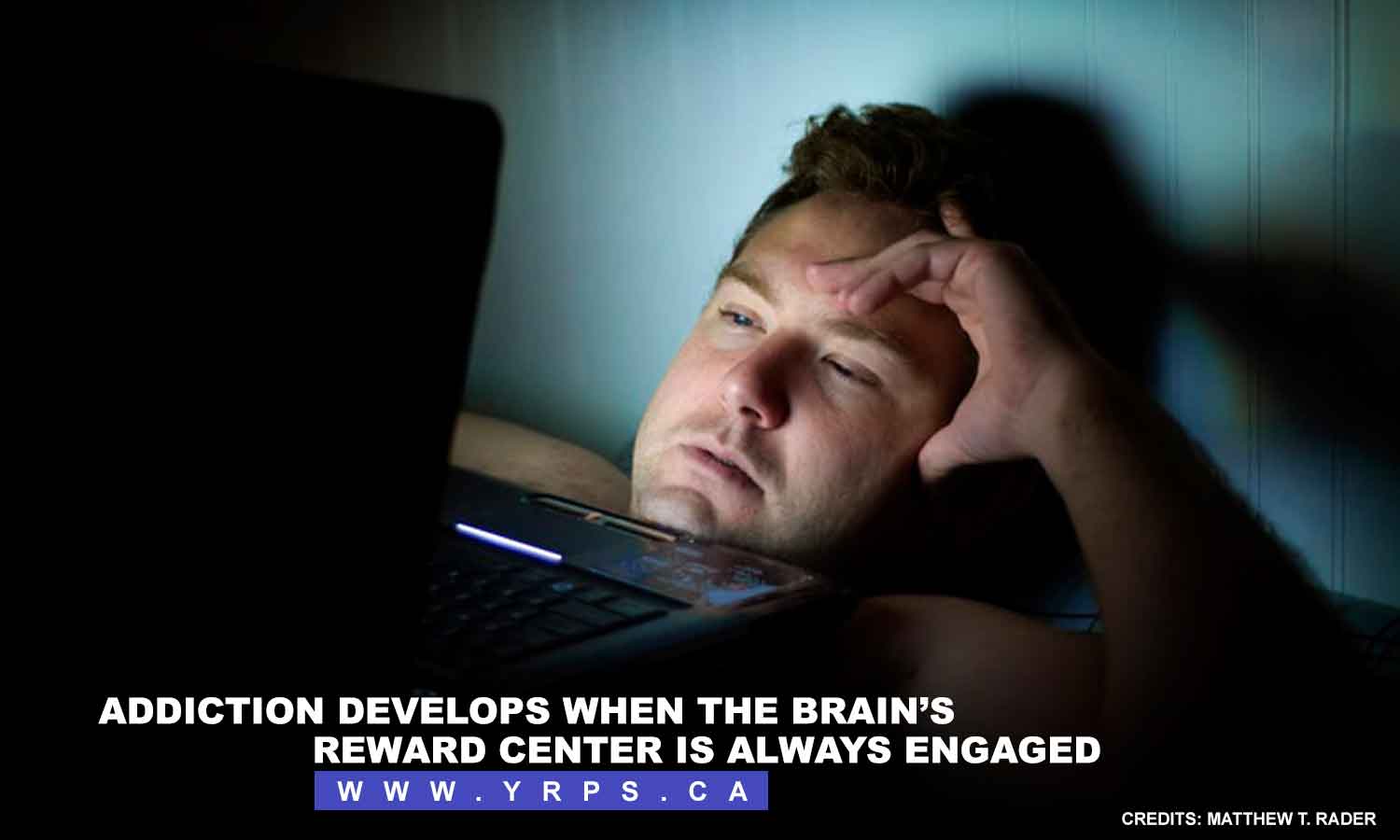
Social media addiction refers to the excessive and compulsive use of social media networks like Facebook, Twitter, Instagram, Snapchat, and Tinder. For the record, social media addiction is not recognized by the medical field as a clinical diagnosis. Nonetheless, since it is a form of compulsive behaviour, its adverse effects can impact a person’s quality of life.
Harvard University researchers concluded that self-disclosure communication (when people talk and share updates about themselves) induces pleasure and happiness in the brain. This reaction is triggered when the brain cells produce a chemical called dopamine.
This direct stimulation of pleasure is one of the primary causes of addiction. When the reward center of the brain is continuously engaged, it starts to crave for more stimulation. Continuous gratification of this desire leads into the formation of a new habit and over time, the addictive disorder is developed.
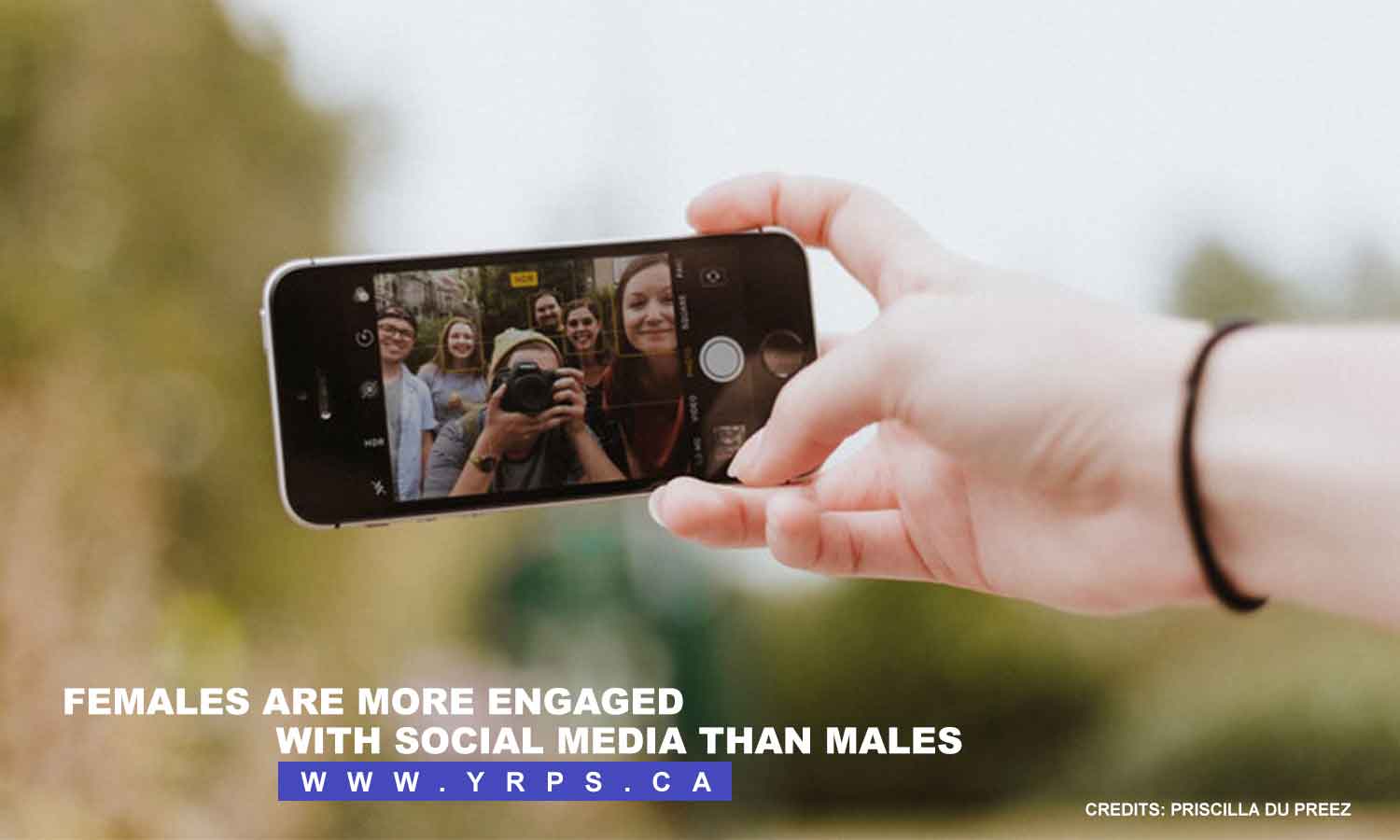
Social Media Addiction Is More Prevalent Among Females
A study from the Nottingham Trent University cited that in terms of gender, addiction to social media use may be more common in women rather than men. This is due to the differences in usage motivations by each demographic. Females use social platforms in excess to interact with their peers, express their sentiments, and to feel understood; while the majority of males prefer to experience “narcissistic gratification” through games.
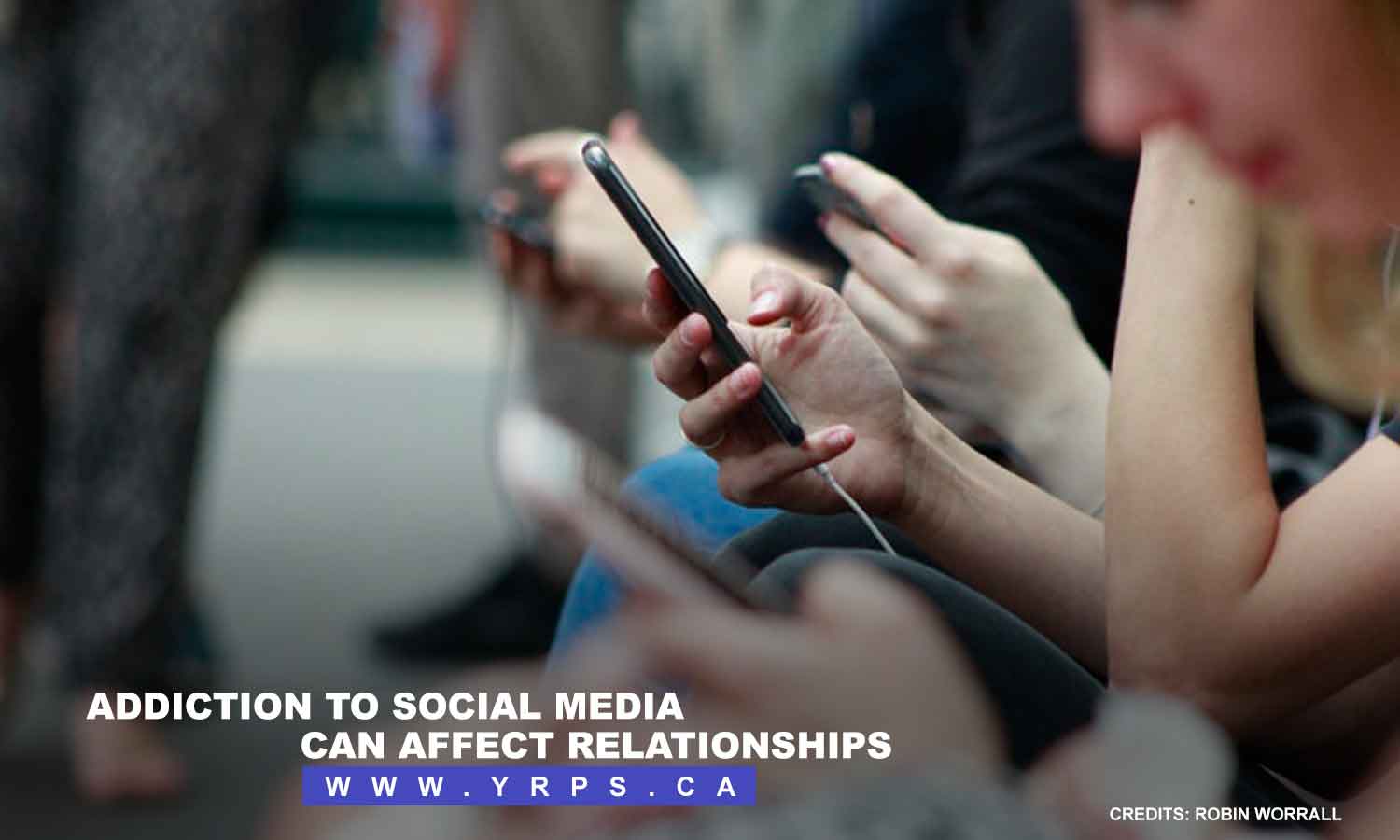
Signs Of Social Media Addiction
Only a few people genuinely experience addiction to social media. However, frequent use of the platform can negatively influence the other areas of a person’s day-to-day life. While not immediately hazardous, behaviours linked to problematic social media use — like replying to chats and mentions while ignoring friends or loved ones — may strain relationships.
Social media addiction progresses gradually, and the way to identify its symptoms is to trace your moment-by-moment activities. To know whether you may be at risk of developing this addiction, try to ask yourselves these eight questions:
- Do you spend most of your time thinking about social media or planning to use social media?
- Do you check social media first thing in the morning?
- Do you feel this nagging urge to use social media to fill pockets of your time?
- Do you constantly track the number of ‘Likes’ and ‘Shares’ that your posts have garnered?
- Do you resort to using social media to shrug off your problems?
- Have you tried to minimize your social media use but to no avail?
- Do you get frustrated or restless when you are not able to check notifications from any of your social media accounts?
- Has your social media use harmed your studies or job?
If you answered “yes” to all these questions, then you may be developing social media addiction. The best way to confirm these symptoms of addiction is to consult with a clinical psychologist for proper diagnosis and treatment.
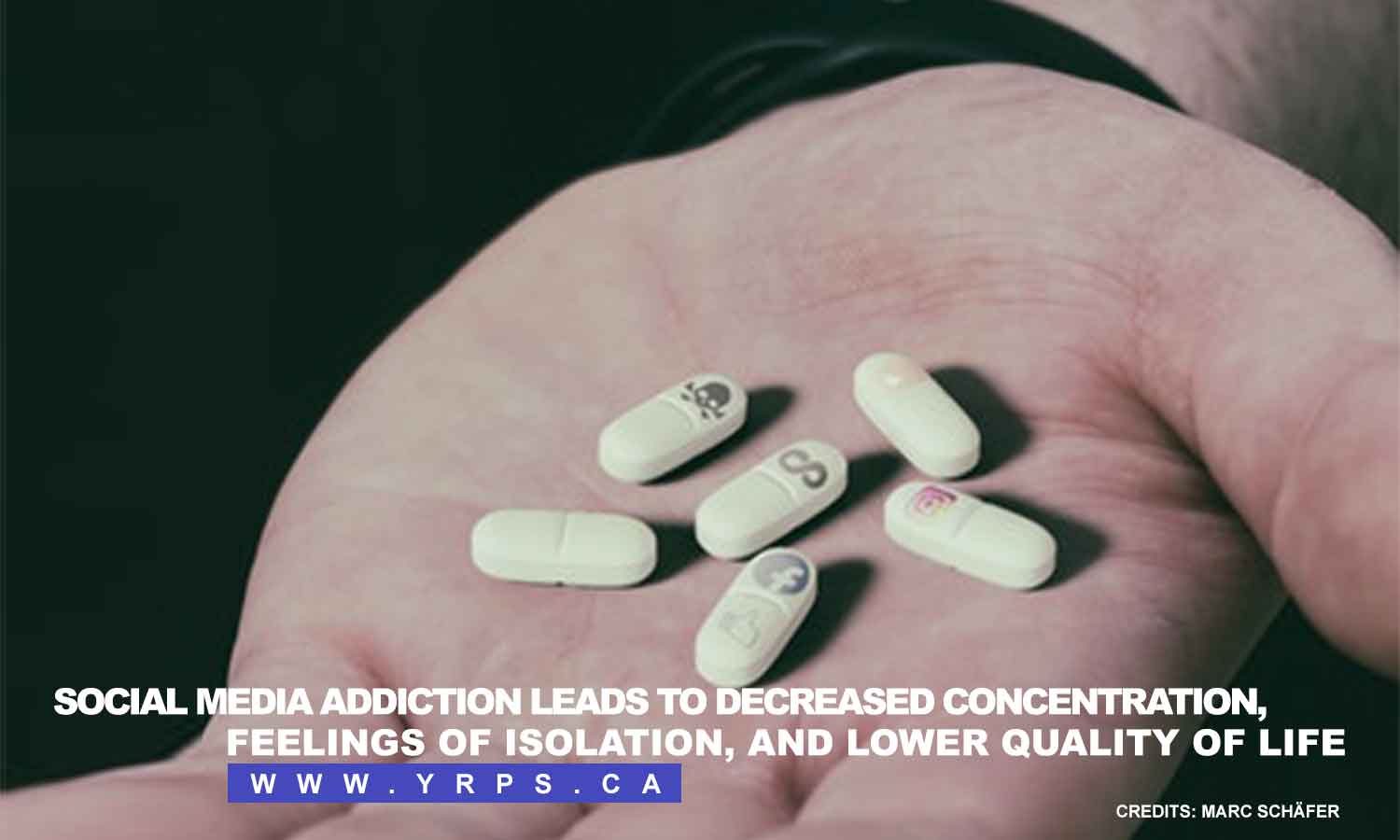
Mental Effects Of Social Media Addiction
The Canadian Mental Health Association has warned about the mental health effects of excessive use of social media. Below are some of the impacts of social media addiction to a person’s mental well-being:
- Sadness – A study found out that Facebook use is associated with less happiness and satisfaction in life. While the social network provides bridges for people to connect instantly, it still lacks the powerful and enriching face-to-face interactions that offline relationships offer.
- Life comparison – One of the downsides of using social media is that it makes people feel social isolation. This can be caused by the comparison factor, wherein people tend to measure up and compare themselves to others when scrolling past posts.
A study discovered that when viewing other people’s highlight reels on social media, people draw comparisons in “upward” or “downward” directions, which means that people turn into themselves and get the feeling of being better or worse than their peers. Both manners of comparisons can make social media users feel bad about themselves. Moreover, comparisons can lead to depressive symptoms.
- Delusion – When a person feels sad, he will likely turn to social media for distractions (by reading articles, watching videos, and scrolling through funny memes) to feel good. He feels this entertainment will offer a respite from sadness, but in reality, it doesn’t solve the problem.
This behavioural pattern is similar to drug use, where a drug dependent consumes the drug in to alter their mood, induce pleasure, or get numbed to get the same effects they had experienced during their last usage. However, this will only trap a person in a vicious cycle of usage and relapse (and the delusion of control) without necessarily addressing the root cause of the sadness.
- Decreased productivity – The itch to use social media can disrupt your work productivity levels. Social media can eat up a considerable chunk of your time that you could’ve used for getting quality work done. The key is to exercise discipline and responsibility when using social media.
- Stress – Heavy screen time is associated with a high risk of stress and mental health issues, including depression, anxiety, compromised sleep quality, and lower self-esteem in young adults. Information overload brought by prolonged consumption of media is also seen to diminish brain power, resulting in the inability to process information and make quality decisions.
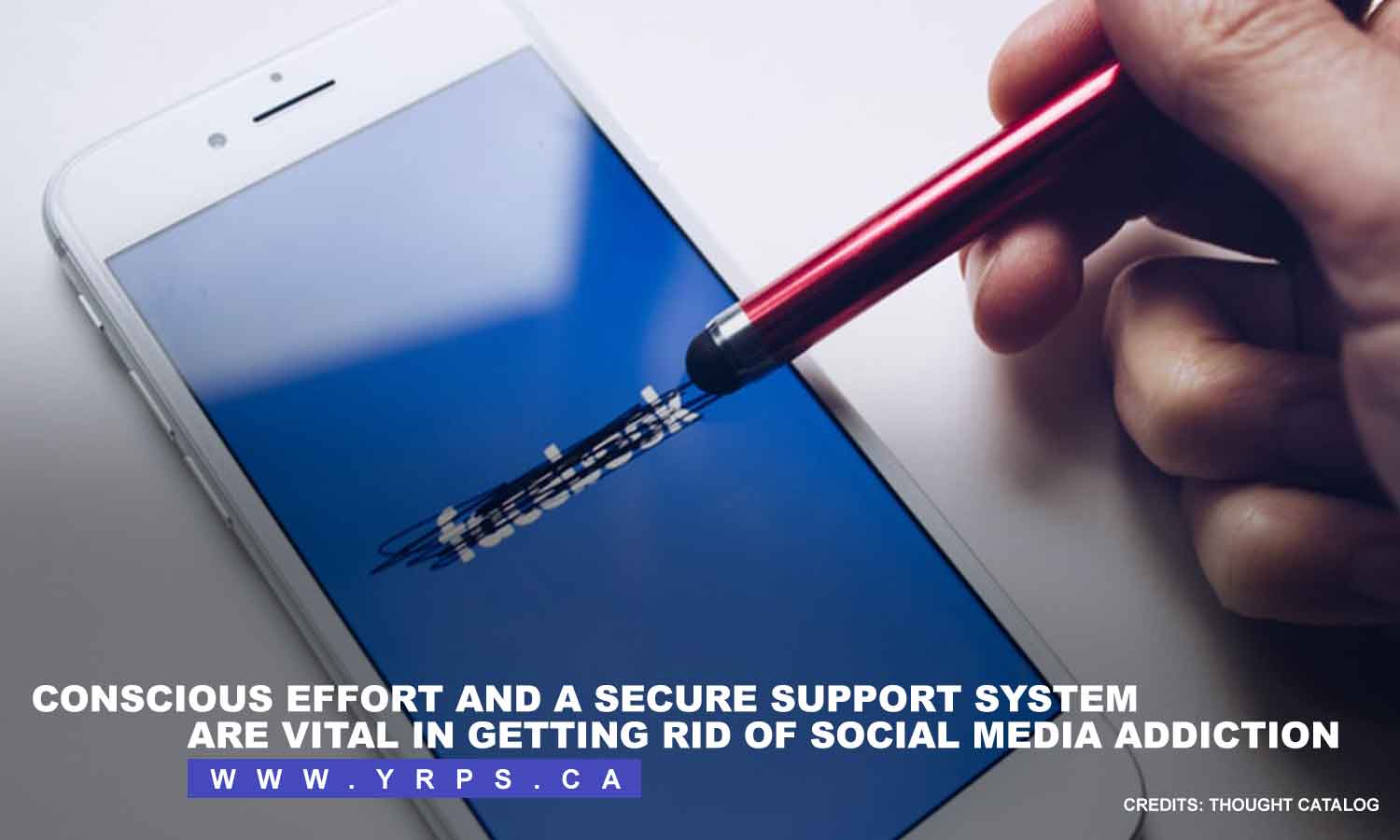
Quelling Social Media Addiction
Addiction to social media is a behavioural issue that can be corrected with conscious effort. Here are some effective strategies to help control your social media use:
Turn off notifications. One of the reasons people are often distracted by social media is notifications. That conspicuous popping tone can eat away at your attention, but you don’t have to let it. The best way to stop notifications is to turn them off. Only check them once you’re done with your important tasks or during your break times.
- Limit your social media use. Allot a specific amount of time for checking notifications and scrolling your newsfeed. Use this time only during a certain hour each day. This way, you can train your mind to focus on the work that’s at hand and prevent any distraction.
- Find other avenues to channel your attention. Typically, people whip out their smartphones and use social media when they have nothing else to do. You can prevent this by using your pockets of time to do hobbies or useful activities that fuel self-growth.Read a good book, learn to play an instrument, grab a coffee with a friend, or go for a quick run.
- Don’t bring your phone into your bedroom. Three out of four people will use their phones within 15 minutes of going to bed. Many also check their phones the moment they wake up in the morning. If you want to savour the first and last minutes of your day, keep your phone at arm’s length. Instead, leave it anywhere that’s out of reach while you sleep.
- Get a support group. Some people are conscious of their social media habits and understand how these habits can affect their lives, but lack the resolve to address them. People experiencing addiction issues of any kind need a secure support system that will encourage them to confront their problems head-on.
Communicate with your spouse, friends, parents, colleagues, or boss about your decision. Tell them to remind you to stop once they see you spend too much time on social networks.
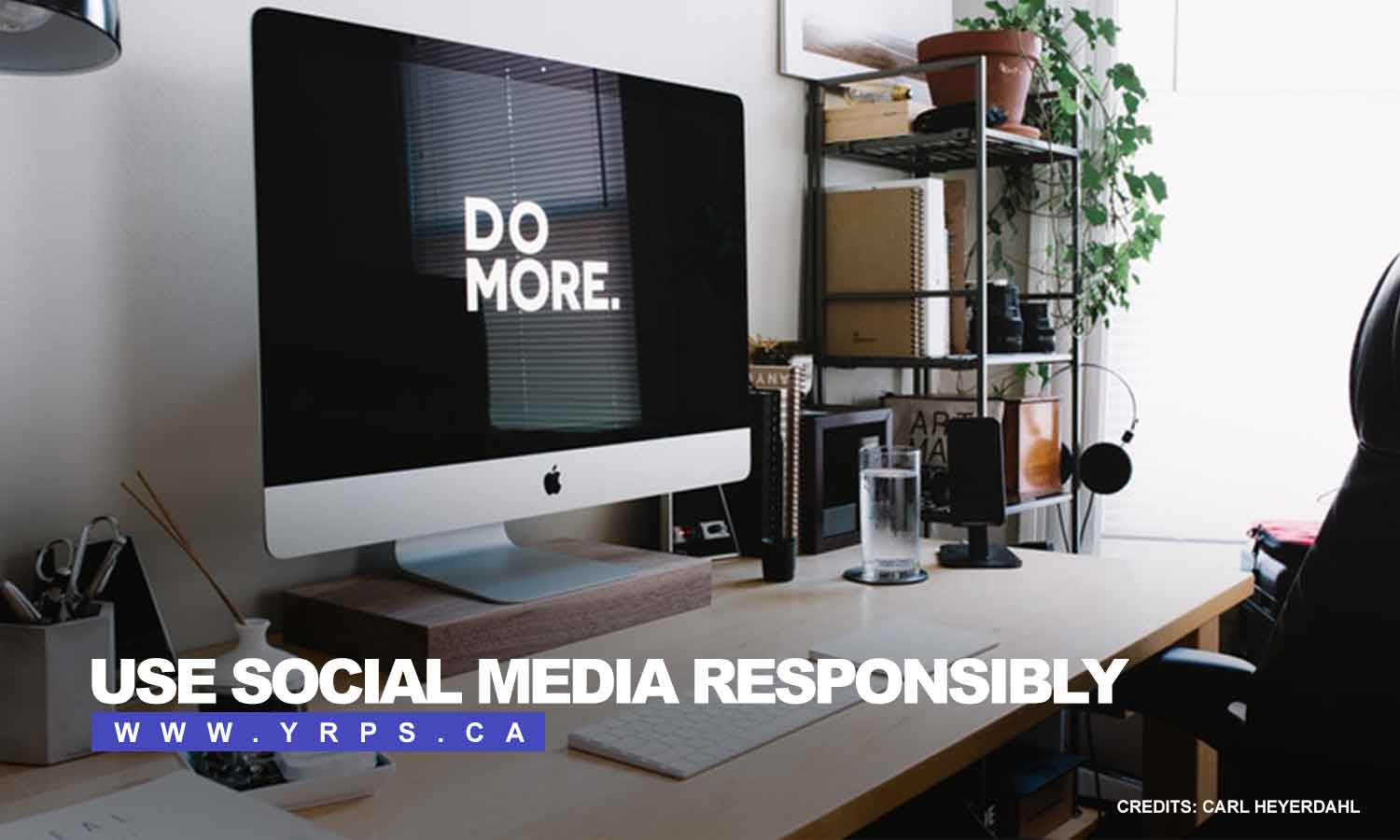
Social media is an excellent avenue for instantly connecting with people and gain new information. However, never give this platform the reins to your time and well-being.
Any addiction can be dangerous if left unaddressed. Consulting a professional psychologist can help you to address addiction issues. Contact a licensed counsellor immediately if you suspect possible signs of addiction in yourself or your loved ones.
At York Region Psychological Services, we provide our clients in Thornhill, Ontario, with complete psychological counselling services. We’re here to offer guidance to clients in need. Call us at (416) 602-3230.




